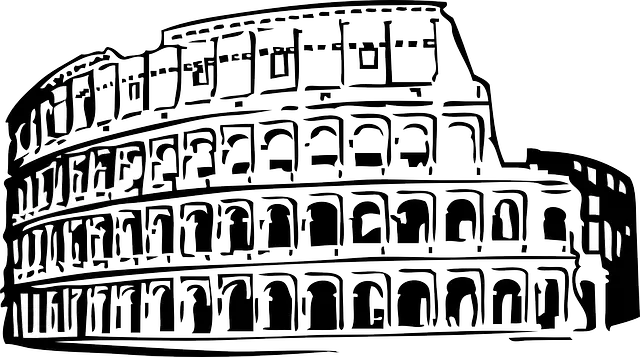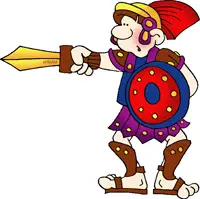Roman Mythology
 Background: Roman mythology is a collection of traditional stories, beliefs and rituals that Romans used to describe the origin of Roman civilization, culture, history and religion. Romans believed these stories to be true despite many supernatural events described in them. The religious part of Roman mythology is heavily inspired from Greek mythology.
Background: Roman mythology is a collection of traditional stories, beliefs and rituals that Romans used to describe the origin of Roman civilization, culture, history and religion. Romans believed these stories to be true despite many supernatural events described in them. The religious part of Roman mythology is heavily inspired from Greek mythology.
The early Romans particularly liked Greek gods and adopted most of them. However, in an effort to make them look Roman, they changed their names and the stories. Roman mythology also loaned many concepts and stories from Etruscan religion which is not very well documented by historians. The earliest period of Rome is a blend of history and mythology. Characters like Romulus are considered legendary and there is no definitive evidence of their actual existence.

Founding of Rome: Romans tried to explain their origin, history and religion, all through mythology. Their social, religious and cultural beliefs were centered on Roman mythology. Founding of Rome is also a well known myth. It describes two legendary characters, Romulus and Remus, who were twin brothers and were born to a woman named Rhea Silvia and Roman god of war, Mars.
They were abandoned as infants and were suckled by a she-wolf and fed by a woodpecker. The two brothers later killed the usurper who had taken control of their maternal grandfather’s kingdom and restored him to his throne. They decided to establish their own city and soon entered a dispute over selection of site. Romulus killed his brother Remus over this dispute. Romulus is credited in mythological account with construction and founding of city of Rome.

 Religion and Roman Mythology: Roman mythology plays a very important role in religion. As the Roman religion was based on rituals, myths were very important to the adherents of the Roman religion. Romans believed in ‘specialist gods’ who all had a different specialty and affected the lives of Romans in different ways. Roman mythology explained the background, history and powers of all these gods. Jupiter was considered king of gods and god of thunder and lightning. He was also patron god of Rome and was the Roman version of Greek god Zeus.
Religion and Roman Mythology: Roman mythology plays a very important role in religion. As the Roman religion was based on rituals, myths were very important to the adherents of the Roman religion. Romans believed in ‘specialist gods’ who all had a different specialty and affected the lives of Romans in different ways. Roman mythology explained the background, history and powers of all these gods. Jupiter was considered king of gods and god of thunder and lightning. He was also patron god of Rome and was the Roman version of Greek god Zeus.

Jupiter’s wife, Juno was considered the protector of Rome and came from Greek goddess Hera. Mars was god of war, Mercury was god of trade, Neptune was god of sea and patron of horses, Venus was goddess of love and beauty and Diana was goddess of hunt, animals and archery. Romans worshipped all these gods for varying reasons described in the mythology. Ancient Roman religion was almost entirely based on mythology. Romans welcomed foreign gods as well and adopted them for worship to gain universal favor from all divine sources.

Mythology and Roman Culture: Romans used mythology to describe social values. Many stories that are a part of Roman mythology aim to explain cultural and social virtues. These stories revolve around a central character that served his state or nation and performed feats of bravery or intellect. Legends of Hercules (son of Jupiter), Servius Tullius (6th Roman king), Lucretia, Horatius at the Bridge, Mucius Scaevola and Cybele are an important part of Roman mythology and culture.

Importance of Mythology in Roman history: Romans believed that their myths were accurately defined historical events and personalities. The Roman mythology did not labor to address the theological and factual issues and was more concerned with rituals and augury (interpreting will of gods by studying flight of birds).
Heroism was an important part of these myths and an individual’s responsibility and duty towards state is emphasized upon. After Christianity was adopted as state religion, myths lost their importance and the religious portion of the mythology gradually faded out of the society. Roman poet Ovid’s literary work ‘Metamorphoses’ is the best known work on Roman mythology.



